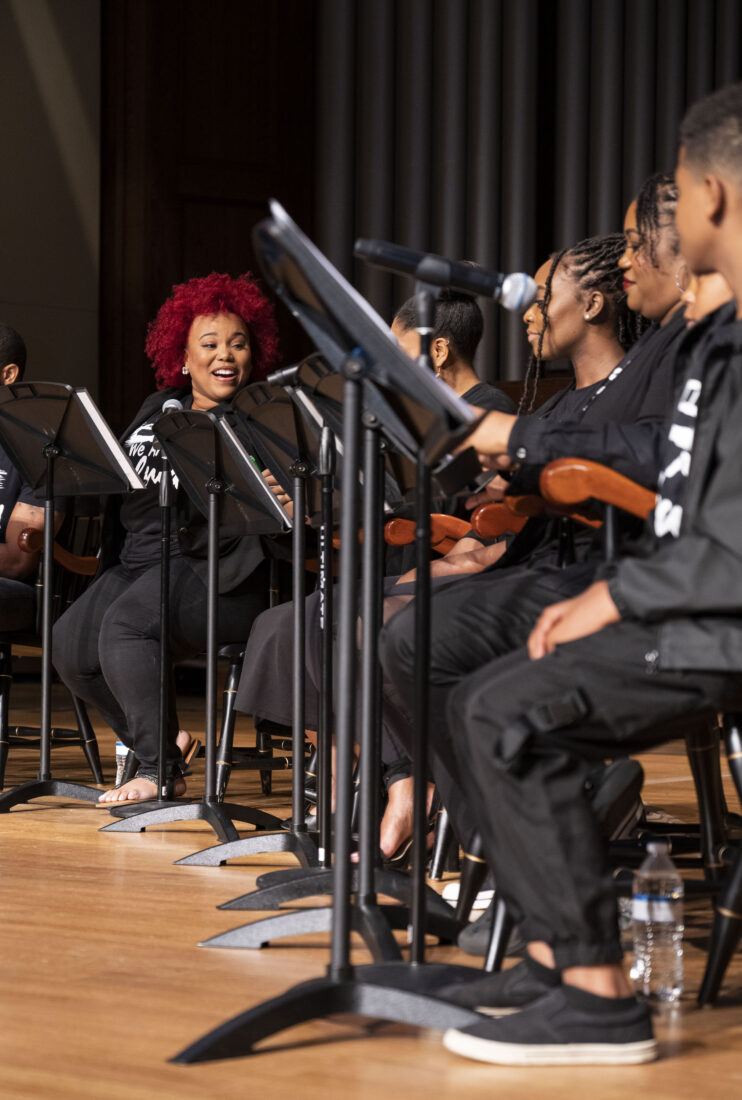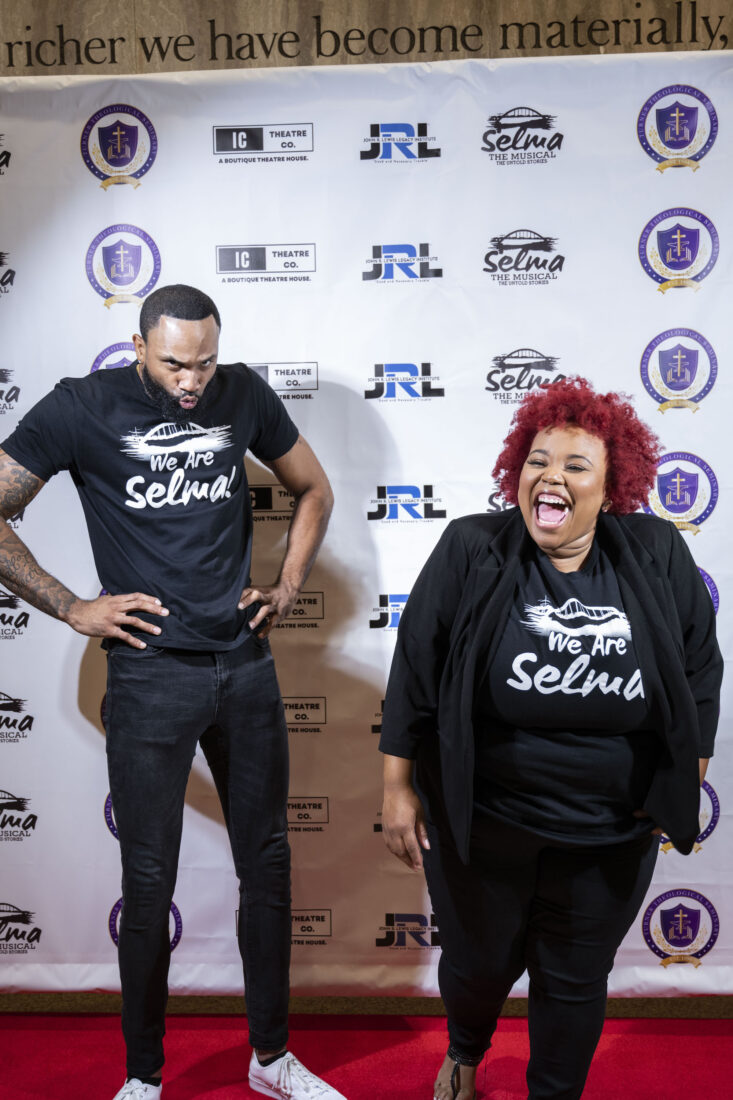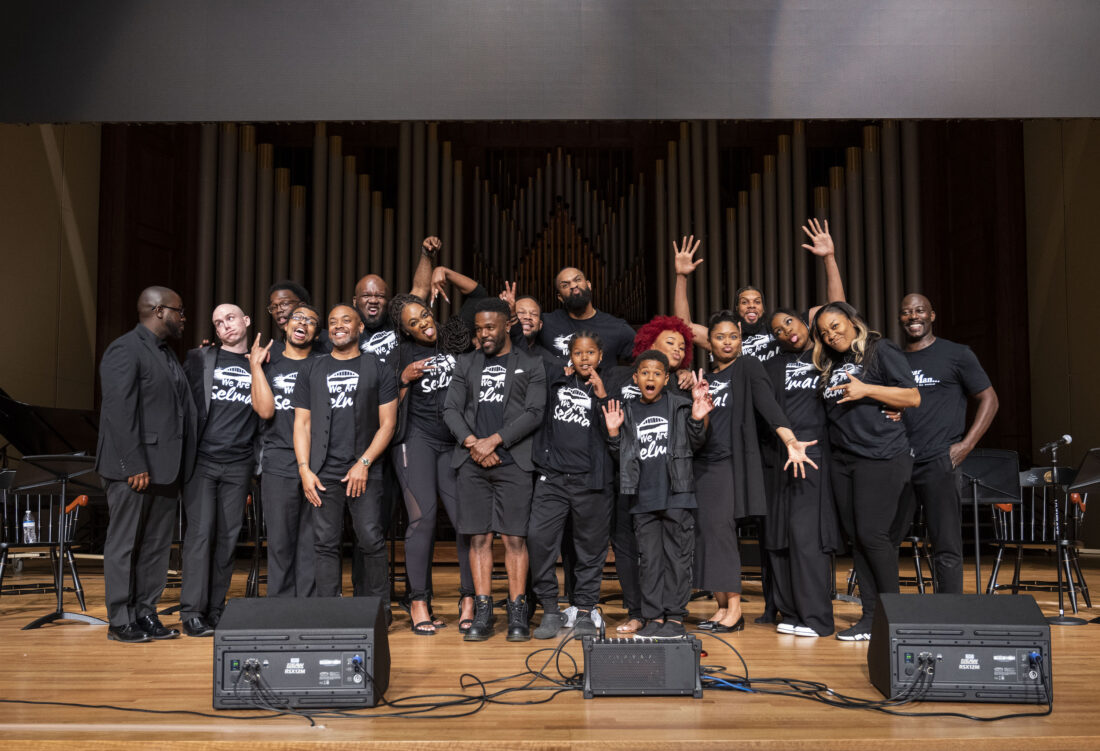On March 20, 1965, Martin Luther King Jr., John Lewis, clergymen, and hundreds of everyday people led a peaceful march from Selma to Montgomery, Alabama, in support of the Civil Rights Act. At the time, Alabama was one of the most dangerous places in America to be Black, and King and other activists wanted to send a message that the promises of the U.S. Constitution would apply to African Americans.

In 2017, Jana P. Haynes, a writer and entrepreneur from Hattiesburg, Mississippi, saw history repeating itself. Thousands of people across the country were marching in favor of better protections from race-based violence at the hands of vigilantes and law enforcement. Haynes had grown up hearing stories about the civil rights movement from her elders. She’d visited Selma for the first time in 2016 to perform a piece of spoken-word poetry at the annual Bridge Crossing Jubilee. When she arrived, she says the Queen City of the Black Belt spoke to her.
“The moment you cross the city limits and see the bridge, there’s a heaviness,” Haynes says. “There’s a spirit there.”
When she returned home to Mississippi, Haynes, who is also a poet, started writing her very first musical. Selma is the story of siblings Connie and Joe, whose parents died when they were young, leaving them to take care of their younger sisters. They’ve both been watching the civil rights movement unfold, and Connie is excited about “Dr. Kang comin’ to town,” while Joe is more aligned with Malcolm X and Black nationalism. The two clash while Connie prepares for King, Lewis, Ralph David Abernathy, and Andrew Young to visit their home days before the march.
To play Connie, Haynes called her friend Melissa Davidson, a nurse, singer, and actress. Davidson immediately signed on; her great grandfather, Vernon Dahmer Sr., was a civil rights activist in Hattiesburg credited with coining the phrase, “If you don’t vote, you don’t count.”
Davidson saw Selma as a way to honor civil rights activists like her great grandfather, past and present. “He was killed by the Ku Klux Klan for saving his family when they bombed his home. He has a statue in the city,” she says. “This musical is a charge to the people for action.”
In March 2017, Haynes, Davidson, and the original cast traveled to Selma to perform the musical. They had a chair and sofa as a set, and only fifteen people were in the audience. Haynes, who had used her rent and bill money to stage the show, went back to her corporate job, discouraged. Then, later that year, she was in a life-altering car accident; meanwhile, the killings of unarmed Black people continued. She decided to start fresh.
“I didn’t have a full understanding of what creating a musical meant,” Haynes says of her first attempt at Selma. “I was writing a play with music based on what we had seen in Black church culture. I grew up in a Baptist church. We saw Tyler Perry. I didn’t know August Wilson and Lorraine Hansberry at the time.”
This time around, she started reading works by lauded playwrights to learn how to craft a script. She also hired a dramaturg and a musical director to help guide her along the way.
In 2018 the cast returned to Selma, this time to a sold-out audience. They started performing special engagements around the country and caught the attention of Good Morning America after they traveled to New York and sang in Times Square. Host Robin Roberts, who is from Mississippi, heard them and invited them to come back and sing on the air. From there, they began touring the country and beyond, including an engagement with Royal Caribbean cruise line.

By 2019, the actor Quintin Alexander, who hails from Fulton, Mississippi, joined the cast to play Connie’s brother, Joe. Throughout the show, Joe is resistant to the presence of outsiders in his hometown. A type of character rarely seen in depictions of the civil rights movement, he gives voice to those who viewed King and his companions as mere publicity seekers. By the end of the musical, Joe has a change of heart.
Alexander says that for him, the musical is a reminder of what people can achieve when they come together. “The idea that you can’t save everyone is a lazy thought to me,” he says. “This story tells us we can.”
The company grew to include more than a dozen actors and a band by the time the pandemic hit. To maintain an outlet for herself and the artists during the shut-down, Haynes pivoted to producing digital content. Then, after George Floyd was killed by police officers in Minneapolis, she updated Selma again.
“There’s a song, ‘Dear Black Man,’ sung by the women in the show. There’s a piece called ‘Two Americas’ where we don’t know whether we’re in 1963 or 2021 because I wanted to overlap the bridge march and the [January 6] insurrection,” she says. “I wanted to create a piece that had more depth, girth, and truth.”

This year, the company is back on the road performing a concert version of Selma, most recently in Atlanta, New York. and Washington, D.C. Haynes says there have been conversations with Broadway producers, but nothing has come to fruition yet.
“It’s the story of Selma but also the story of Black art and Black creativity and the struggle that ensues,” Haynes says of the ongoing journey to find a home for the production. “There’s a story within the story about the difficulties we face in creating spaces, getting opportunities to tell stories, and being artists who are considered worthy of mounting Broadway shows.”
Performances of Selma the Musical are coming up in Pittsburgh on September 24 and Daytona Beach, Florida, October 5–7. The company will also be making stops in Nashville, Tulsa, and overseas in Ghana.
Learn more at selmathemusical.com.
Kelundra Smith is a freelance arts journalist, playwright, and critic from Atlanta. She is also the director of publications at Theatre Communications Group. As a member of the American Theatre Critics Association, she cocreated the Edward Medina Prize for Excellence in Cultural Criticism, which recognizes writers from historically underrepresented groups. Follow @pieceofkay on X and @anotherpieceofkay on Instagram.








